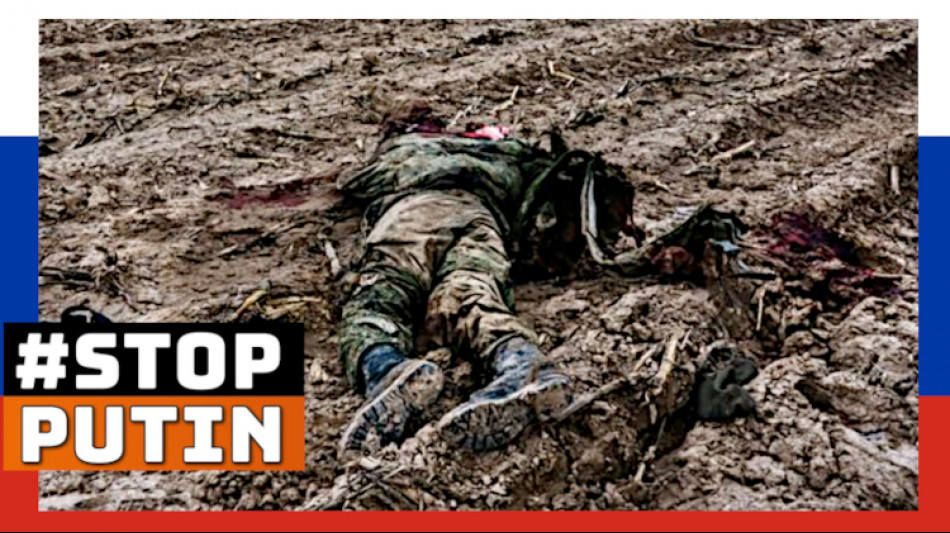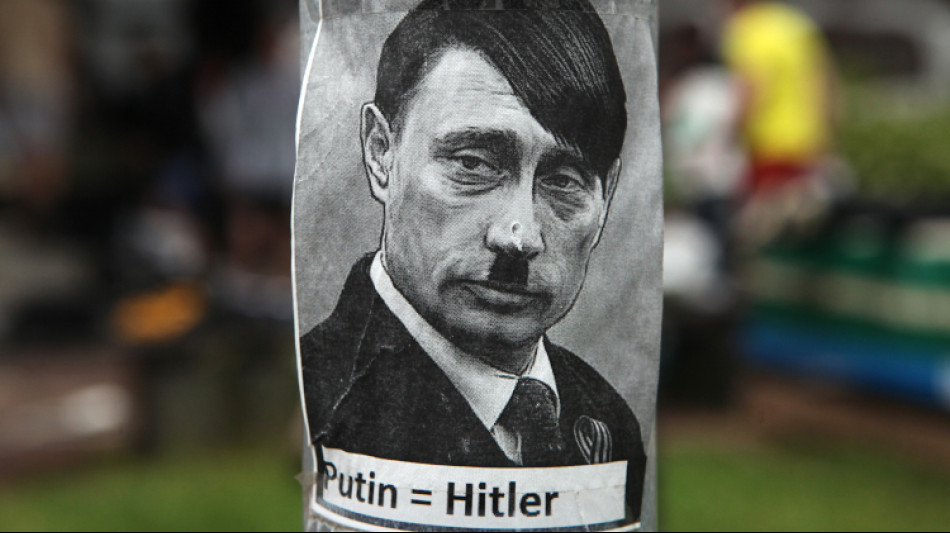-
 Strait of Hormuz impasse squeezes world shipping
Strait of Hormuz impasse squeezes world shipping
-
Fresh Israel, Iran attacks across region: Latest developments in Middle East war

-
 Oscar-nominated Iranian doc offers different vision of leadership
Oscar-nominated Iranian doc offers different vision of leadership
-
Oscar-nominated docs take on hot-button US social issues

-
 'I couldn't breathe': The dark side of Bolivia's silver boom
'I couldn't breathe': The dark side of Bolivia's silver boom
-
Trump warns of longer Iran war as Riyadh, Beirut hit

-
 Underground party scene: Israelis celebrate Purim in air raid shelters
Underground party scene: Israelis celebrate Purim in air raid shelters
-
Flowers, music, and soldiers at funeral of drug lord

-
 'Safety and wellbeing' will guide F1 Mideast planning: FIA chief
'Safety and wellbeing' will guide F1 Mideast planning: FIA chief
-
Trump to attend White House Correspondents' dinner

-
 Will Iran's missiles drain US interceptor stocks?
Will Iran's missiles drain US interceptor stocks?
-
Trump warns of longer Iran war as violence spreads

-
 Energy infrastructure emerges as war target, lifting prices
Energy infrastructure emerges as war target, lifting prices
-
Trump warns of longer Iran war, Rubio points at Israel

-
 US urges to 'depart now' from Middle East: Latest developments in Iran war
US urges to 'depart now' from Middle East: Latest developments in Iran war
-
Ecuador launches joint anti-drug operations with US

-
 Getafe deal flat Real Madrid La Liga title race blow
Getafe deal flat Real Madrid La Liga title race blow
-
Rubio, Hezbollah and Qatar: Latest developments in Iran war

-
 Rubio says Israel's strike plan triggered US attack on Iran
Rubio says Israel's strike plan triggered US attack on Iran
-
'Thank you, madam president': Melania Trump leads UN Security Council as Iran war rages

-
 Bombing Iran, Trump has 'epic fury' but endgame undefined
Bombing Iran, Trump has 'epic fury' but endgame undefined
-
US slaps sanctions on Rwanda military over DR Congo 'violation'

-
 US Congress to debate Trump's war powers
US Congress to debate Trump's war powers
-
US appeals court denies Trump bid to delay tariff refund lawsuits

-
 Trump warns of longer Iran war
Trump warns of longer Iran war
-
Fire-damaged Six nations trophy to be replaced

-
 Trump mulls ground troops: latest developments in US-Iran war
Trump mulls ground troops: latest developments in US-Iran war
-
Middle East war puts shipping firms in tight insurance spot

-
 Qatar downs Iran jets as Tehran targets oil and gas in spiralling Gulf crisis
Qatar downs Iran jets as Tehran targets oil and gas in spiralling Gulf crisis
-
UK PM says US will not use British bases in Cyprus

-
 Can Anthropic survive taking on Trump's Pentagon?
Can Anthropic survive taking on Trump's Pentagon?
-
Real Madrid superstar Mbappe in Paris for treatment on knee injury

-
 Mideast war risks sending global economy into stagflation
Mideast war risks sending global economy into stagflation
-
Stranded tourists shelter from missile fire in Dubai

-
 Iran war spells danger for global airlines
Iran war spells danger for global airlines
-
Trump doesn't rule out sending US troops into Iran

-
 'No aborts. Good luck': Key moments in the US war on Iran
'No aborts. Good luck': Key moments in the US war on Iran
-
Chelsea boss Rosenior warns players over discipline

-
 Energy prices soar on Iran war fallout, stocks slide
Energy prices soar on Iran war fallout, stocks slide
-
Pentagon chief refuses to rule out 'boots on ground' in Iran

-
 Saudi military raises readiness levels after attacks
Saudi military raises readiness levels after attacks
-
Iran war spreads with strikes across Middle East and beyond

-
 Barca must 'make the impossible possible': coach Flick on Atletico cup challenge
Barca must 'make the impossible possible': coach Flick on Atletico cup challenge
-
Furry, frayed & freezing on Milan catwalks: the fashion trends

-
 Amsterdam's Rijksmuseum discovers new Rembrandt
Amsterdam's Rijksmuseum discovers new Rembrandt
-
Olympic comeback queen Brignone ends ski season

-
 Key Gulf air hubs caught up in Iran conflict
Key Gulf air hubs caught up in Iran conflict
-
Middle East fighting overshadows world telecom show

-
 South Korea outclass Iran in Asian Women's Cup opener
South Korea outclass Iran in Asian Women's Cup opener
-
Liverpool's Slot says his 'football heart' does not like set-piece trend

Russia's "Alliance" in the Balkans is sinking
Over the past decade, Russia has prided itself on maintaining strong relationships with several Balkan nations. This bond, often rooted in shared Slavic heritage, Orthodox Christian traditions, and historical ties, was once perceived as a strategic platform for Moscow to expand its influence in Southeast Europe. Yet recent developments suggest that Russia’s alliance in the Balkans is beginning to unravel, leaving the Kremlin facing new diplomatic challenges in a region long considered sympathetic to its interests.
Eroding Political Influence
Serbia has historically been Russia’s most steadfast partner in the Balkans, buoyed by a sense of cultural kinship and mutual geopolitical interests. However, Belgrade has gradually moved closer to the European Union, seeking membership and deepening economic cooperation with Western nations. While Serbia has not openly broken away from Russia, analysts point to its growing emphasis on European integration as a signal that Belgrade may be distancing itself from Moscow’s orbit.
Montenegro, once firmly in Russia’s sphere of influence, joined NATO in 2017. This move was seen by many as a major blow to the Kremlin’s strategic goals in Southeast Europe, undermining the perception that the region was decidedly pro-Russian. The country’s pivot toward Western defense structures continues to stand as a stark reminder that Kremlin-friendly governments can rapidly realign when broader interests are at stake.
Economic Factors and Energy Ties
One of Moscow’s most effective levers of power in the Balkans had been its role as a key energy supplier. Gas agreements and oil contracts bolstered Russia’s foothold, offering local governments reliable—if sometimes politically fraught—access to affordable energy. Yet Europe’s ongoing efforts to diversify its energy supply and reduce dependence on Russian resources have started to weaken Moscow’s sway.
In Serbia, plans to link up with alternative pipelines from neighboring countries could mitigate Russia’s longstanding energy dominance. Meanwhile, Bosnia and Herzegovina, another state traditionally viewed as within Russia’s sphere, is actively discussing more diversified energy routes. These shifts dilute Russian economic clout and further complicate Moscow’s capacity to maintain a strong presence in the region.
Shifting Public Opinion
While Russia has long relied on cultural diplomacy to foster goodwill among Balkan citizens, recent surveys suggest a notable shift in public sentiment. The economic and social benefits of closer ties with the European Union—such as access to scholarships, visa-free travel, and foreign direct investment—have made many Balkan citizens view Brussels as a more appealing partner than Moscow.
Moreover, Russia’s military actions on other fronts have prompted anxiety among certain Balkan populations who fear that aligning with Moscow could strain relationships with the West and hinder their own EU accession hopes. In societies where European integration is a near-universal aspiration, it is becoming increasingly challenging for pro-Russian narratives to maintain broad popular support.
Geopolitical Ramifications
Russia’s diminishing influence in the Balkans highlights a broader global trend: competing blocs vying for regional sway, with the EU, NATO, and other Western entities making decisive inroads. For the Kremlin, losing ground in Southeast Europe carries political and strategic consequences that ripple beyond the region. By the same token, Balkan states searching for reliable alliances may shift even more decisively toward Western institutions.
Diplomatic experts note that unless Russia reevaluates its strategy—perhaps by offering new forms of economic or security cooperation—it risks being sidelined in a part of Europe it once considered a reliable staging ground for extending its influence.
Conclusion
As Serbia edges closer to EU membership, Montenegro cements its position in NATO, and other Balkan countries explore alternative partnerships, the solid ties that once bound the region to Moscow are fraying. Historical and cultural connections remain, but for many Balkan governments, the imperatives of economic development and European integration are taking precedence over maintaining a robust alliance with Russia. Unless Moscow adapts its approach, it may find its influence in Southeast Europe reduced to a shadow of its former strength, marking the end of an era in Balkan geopolitics.

London: Queen Elizabeth II dies aged 96

EU Medicines Agency approves booster vaccine Omicron

Earthquakes shake the Liechtenstein Parliament

Zelenskyy accuses IAEA of avoiding talks on demilitarisation

US President Joe Biden warns Trump's 'extreme ideology'

Europe's drought could be the worst in 500 years, warns researcher

Donald Trump FBI raid: Agents made unannounced visit...

Hollywood in Ukraine: are celebrities making a difference?

Shevchenko on Russia's Terror and how the war is affecting sport

Zelenskyy slams 'manipulative' strange Amnesty report

18+ Shocking video: Russian army castrates Ukrainian prisoner




